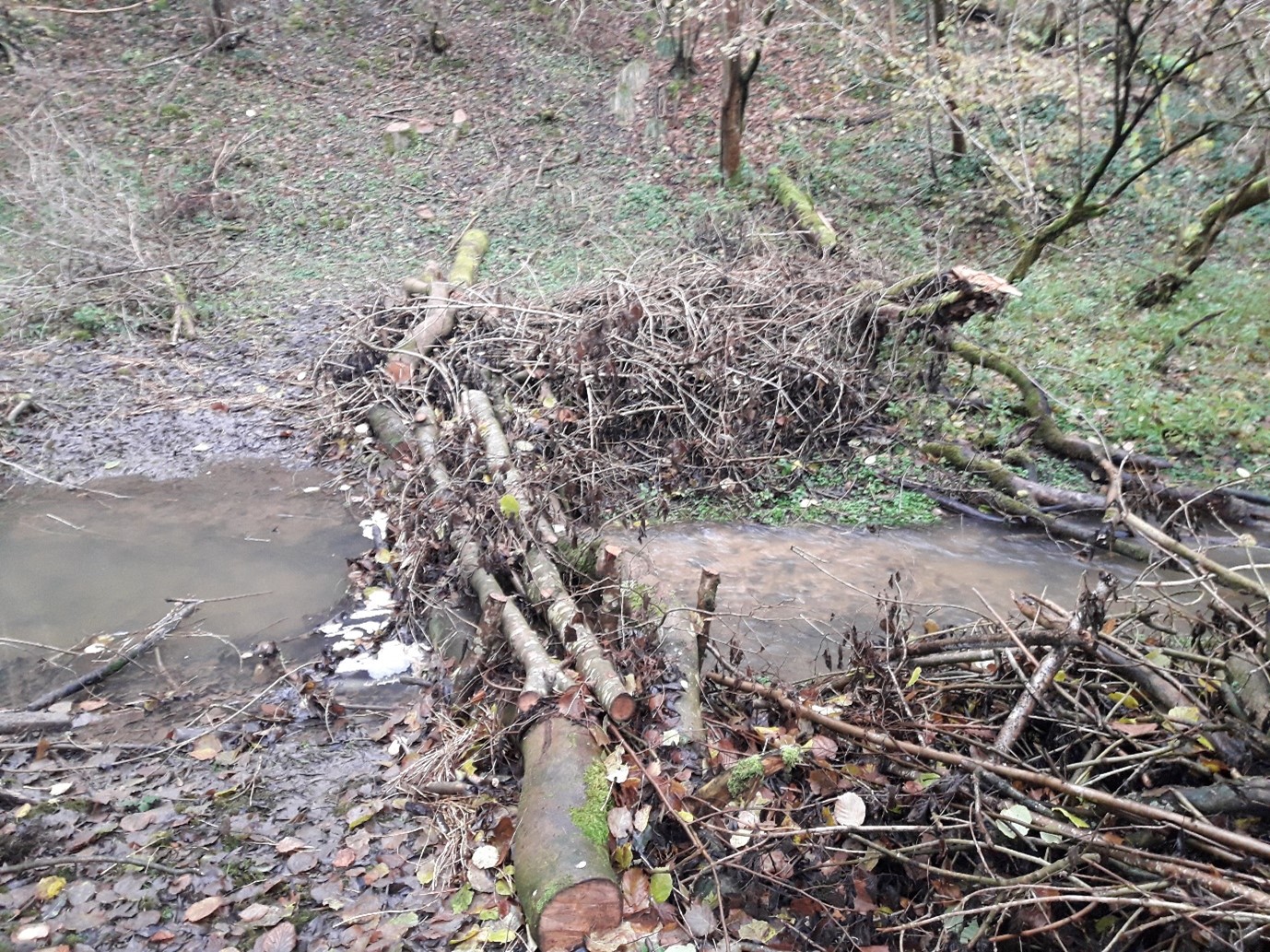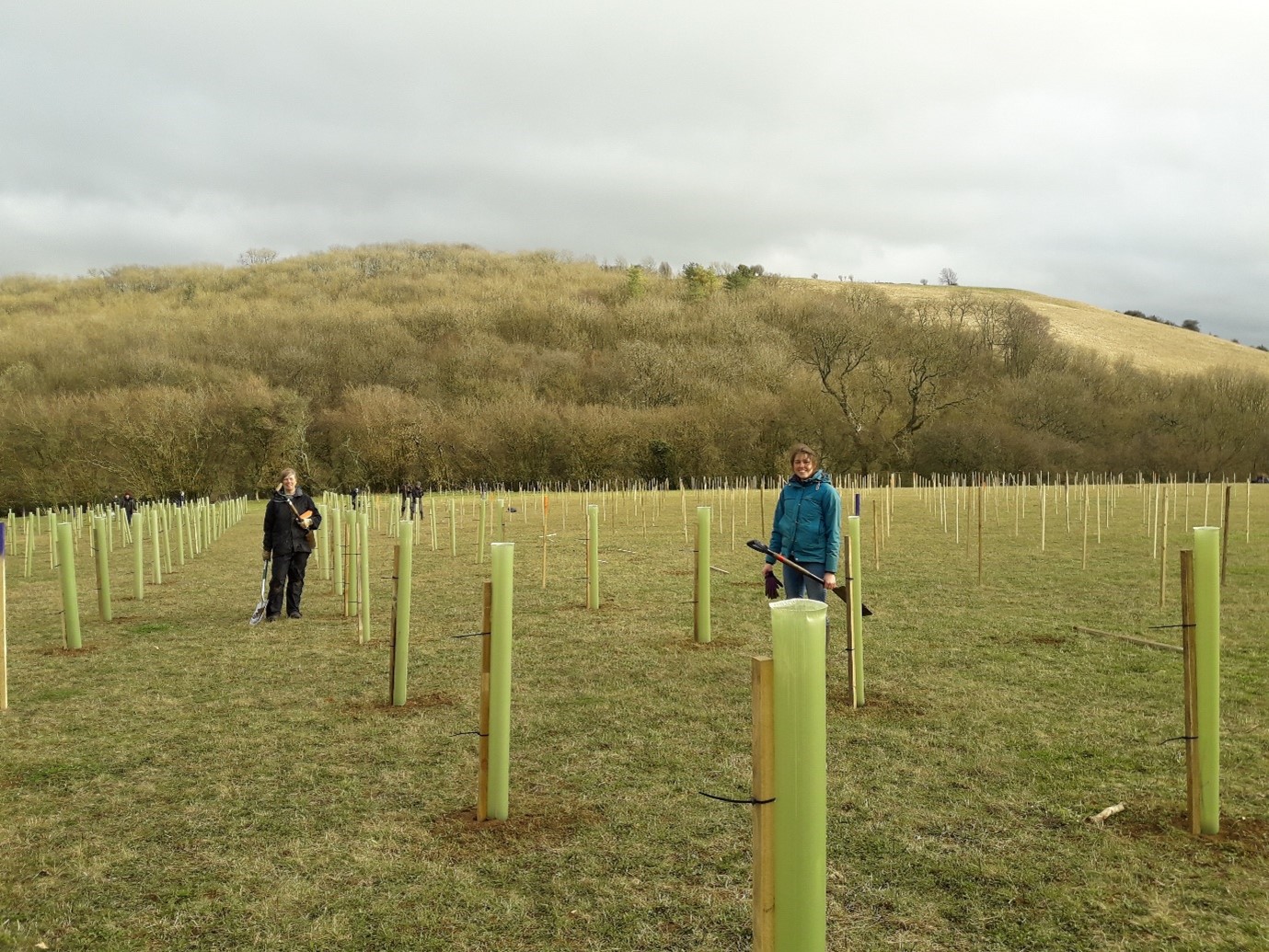The Farming & Wildlife Advisory Group SouthWest (FWAG SW) is a registered charity representing the region’s farmers and landowners in the delivery of wildlife conservation. FWAG SouthWest provides independent expert advice, tailored to farmers needs and aimed at bringing environmental and financial benefits to their businesses.
For the past four years FWAG have been running The Upper Coln Natural Flood Management Project alongside Gloucestershire Wildlife Trust, which is funded from the Defra Natural Flood Management Community Fund. This fund is working to help local communities, businesses and landowners develop a better understanding of local flooding issues and develop a strategic plan to address them through NFM interventions. Over the course of the project, herbal leys have been planted and leaky woody debris dams and soil bunds have been constructed. This winter there has been tree planting, hedge planting and the planned creation of an attenuation pond. As part of the project monitoring we have installed time lapse photography cameras in strategic places to observe how the flow of surface water reacts to rainfall events and how this changes after the installation of NFM measures. All these measures are helping to slow the flow of water and reduce the impact of flooding on Andoversford.
 Leaky Woody Debris Dams
Leaky Woody Debris Dams
 Tree Planting in the Upper Coln Catchment
Tree Planting in the Upper Coln Catchment

From working with landowners in The Upper Coln catchment, Elinor Sherlock from FWAG has been able to conduct soil sampling for the LANDWISE project. The aim of this project is to quantify the impact of different land use and management strategies on key soil properties that affect infiltration and water storage across the main soils type in the West Thames catchment. The following factors were assessed on different farms using different management techniques: selected near-surface properties/characteristics: soil texture, soil organic matter (SOM), soil volumetric water content (VWC), soil dry bulk density (BD), vegetation type, height and cover, soil aggregate stability (slaking & dispersion test) and soil structure (Visual Evaluation of Soil Structure; VESS). The landowners involved are keen to understand how their different management techniques impact on the infiltration and water storage of their soils. Water management is important to farmers to help manage soil sustainability and nutrient management which reduces the risk of pollution. Too frosty for sampling.
Too frosty for sampling. Example field that was sampled.
Example field that was sampled.
 Example field that was sampled.
Example field that was sampled.
